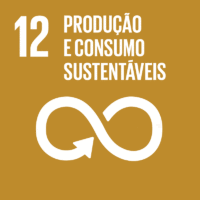Ciência_Iscte
Publicações
Descrição Detalhada da Publicação
Título Revista
Tourism and Hospitality
Ano (publicação definitiva)
2022
Língua
Inglês
País
Suíça
Mais Informação
Web of Science®
Scopus
Google Scholar
Esta publicação não está indexada no Overton
Abstract/Resumo
Full accessibility to people with reduced mobility, applied to tourism, is difficult to achieve and should not be seen in an absolute way, but as a concern to make tourism services more accessible and focused on the specific and individual needs of people as tourists. National and regional entities should adopt good practices to build a tourism of all, for all. The Delphi method was used in order to verify the accessibility and attractiveness of the city of Lisbon as a tourist destination by addressing the following objectives: to analyse the competitiveness of a destination for people with reduced mobility, to analyse if Lisbon is attractive and inclusive, considering its infrastructures, services, hospitality, tourist attractions and accessibility. The results obtained in the study show that Lisbon’s factors and resources are increasingly accessible to people with reduced mobility. Our findings reveal that entertainment, general and tourism infrastructures, accommodation, the various activities and cultural resources and the quality of services present greater accessibility for people with reduced mobility. The factors with less importance were: marketing of a destination, accessibilities, and natural resources.
Agradecimentos/Acknowledgements
--
Palavras-chave
Competitiveness,Accessibility,Reduced mobility,Accessibilities,Niche tourism,Sustainability
Classificação Fields of Science and Technology
- Geografia Económica e Social - Ciências Sociais
Contribuições para os Objetivos do Desenvolvimento Sustentável das Nações Unidas
Com o objetivo de aumentar a investigação direcionada para o cumprimento dos Objetivos do Desenvolvimento Sustentável para 2030 das Nações Unidas, é disponibilizada no Ciência_Iscte a possibilidade de associação, quando aplicável, dos artigos científicos aos Objetivos do Desenvolvimento Sustentável. Estes são os Objetivos do Desenvolvimento Sustentável identificados pelo(s) autor(es) para esta publicação. Para uma informação detalhada dos Objetivos do Desenvolvimento Sustentável, clique aqui.

 English
English




